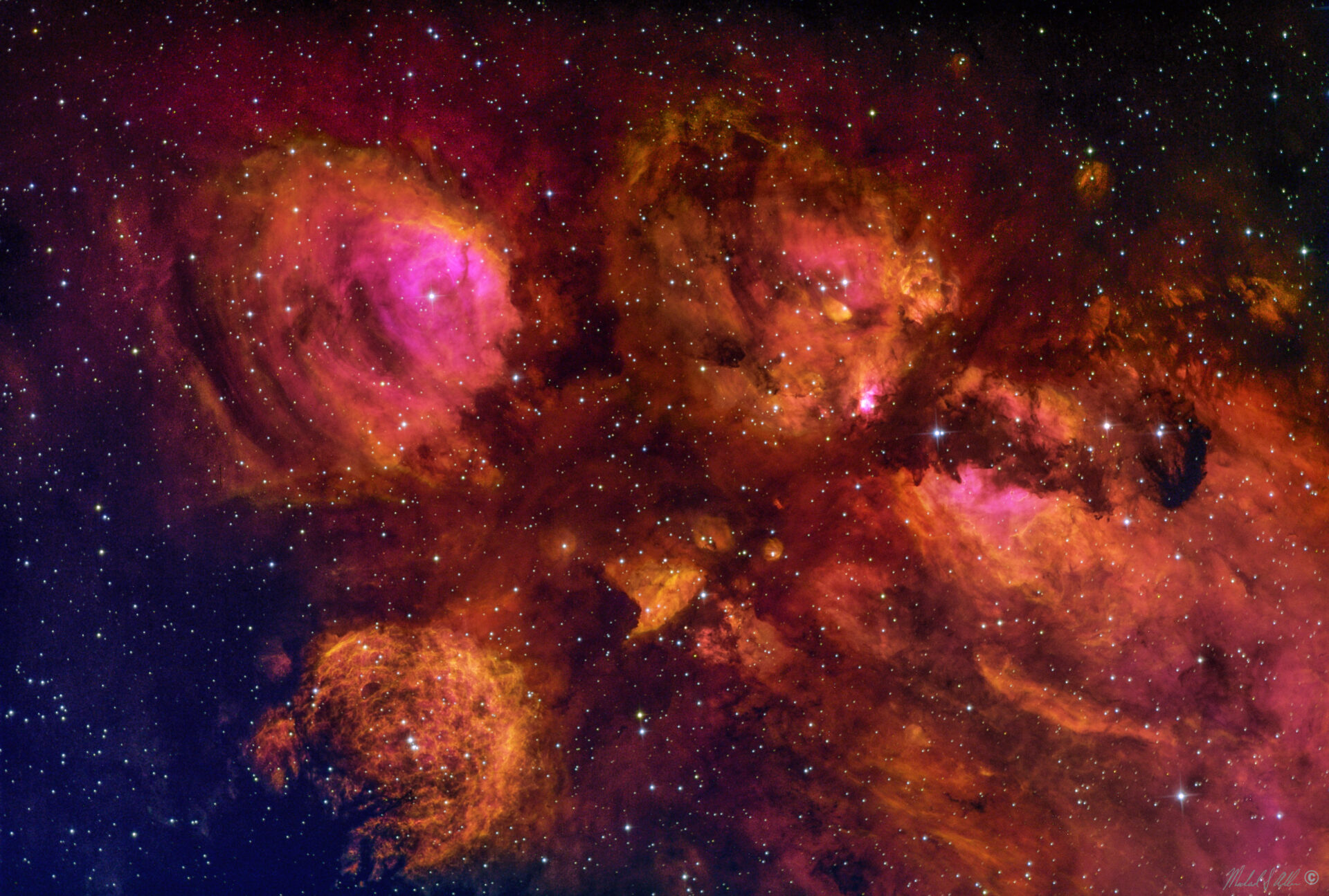Optics: Planewave 17″ CDK17
Mount: Software Bisque Paramount ME
Camera: SBIG STXL 11002
Filters: Astrodon 3nm Ha, Oiii, Siii, LRGB
Dates/Times: October, 2019
Location: Rio Hurtado
Exposure Details: Ha=14x30min, Oiii,Sii=17x30min, total 48 images taken over 26 hours
Acquisition: MaxIm DL
Processing: MaxIm DL,Photoshop CC2020,Starnett++ was used to remove the stars and allow processing of the nebula to be done without affecting the stars. The stars were then added back in. Narrowband with Ha in red, Oiii in blue and RGB added using the screen mode in Photoshop
NGC 6334, Cat’s Paw Nebula(Hydrogen Red Palette)
Original price was: $65.00.$52.50Current price is: $52.50.
NGC 6334, Cat’s Paw Nebula Nebulas are perhaps as famous for being identified with familiar shapes as perhaps cats are for getting into trouble. Still, no known cat could have created the vast Cat’s Paw Nebula visible in Scorpius. At 5,500 light years distant, Cat’s Paw is an emission nebula with a red color that originates from an abundance of ionized hydrogen atoms which are excited by uv light from nearby stars. Alternatively known as the Bear Claw Nebula or NGC 6334, stars nearly ten times the mass of our Sun have been born there in only the past few million years. Framed by orangish clouds, the bright red bubbles are the dominant feature in the image. After gas and dust inside the nebula collapse to form stars, the stars may in turn heat up the pressurized gas surrounding them, causing it to expand into space and create bubbles. The Cats Paw occupies about 3/4 of a degree in the sky(less than two moon diameters). At a distance of 5500 light years this makes it 70 light years in actual size. This false color image is made up by light emitted by hydrogen(red), oxygen(blue), and sulfur(green) atoms. This come close to its actual color since Hydrogen emits in the red and Oxygen emits in blue. It was discovered by astronomer John Herschel in 1837, who observed it from the Cape of Good Hope in South Africa. The nebula is located in the Carina -Sagittarius arm of the Milky Way. Companion images show the Cats Paw in the Hubble palette(Hydrogen green) and a true color version.


